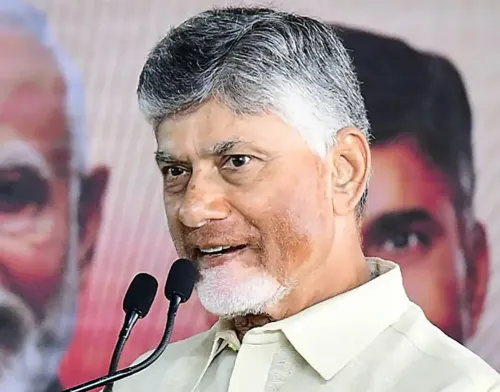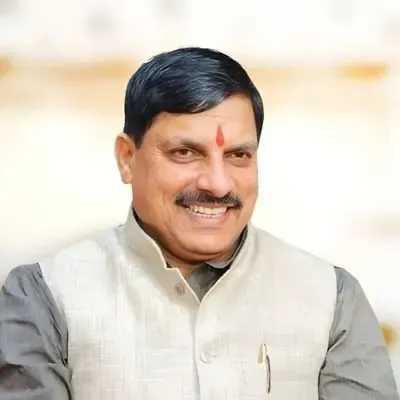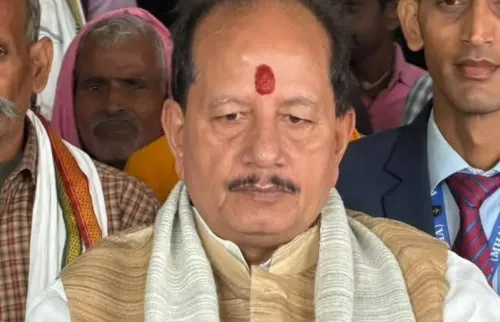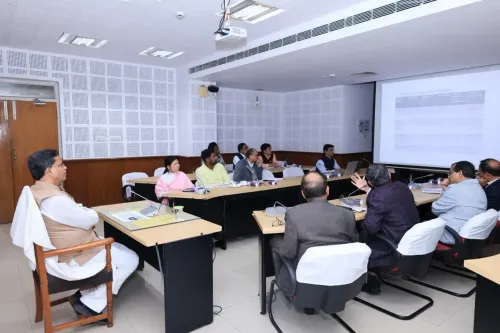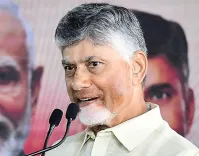HM Shah Evaluates the Execution of New Criminal Legislation in Uttarakhand
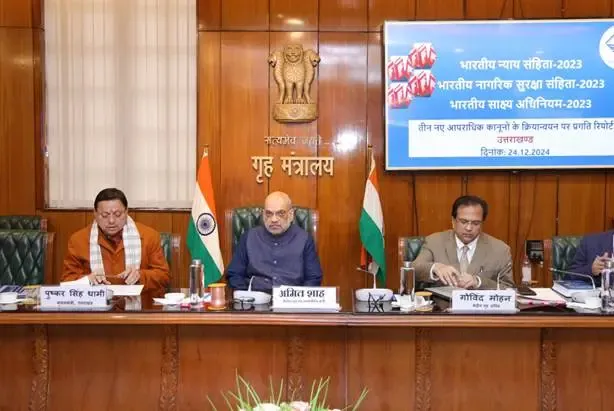
New Delhi, Dec 24 (NationPress) On Tuesday, Union Home Minister Amit Shah called upon Uttarakhand Chief Minister Pushkar Singh Dhami to take necessary steps to bridge the gaps in technology and other domains for the effective execution of the three new criminal laws at every police station in the state.
During a review meeting focused on the enactment of these new laws, HM Shah assessed the current status and implementation of various provisions related to police, prisons, courts, prosecution, and forensics in Uttarakhand.
Highlighting the importance of technology, the Home Minister insisted that more than one forensic mobile van should be accessible in each district throughout the state.
He instructed the Uttarakhand Chief Minister to monitor the progress of these laws' implementation every 15 days, while the Chief Secretary and DGP should do so weekly alongside relevant departmental officials.
Present at the meeting were the Union Home Secretary, Chief Secretary, and the Director General of Police (DGP) of Uttarakhand, as well as the Director General of the Bureau of Police Research and Development (BPR&D), and the Director General of the National Crime Record Bureau (NCRB), along with several senior officials from the Ministry of Home Affairs (MHA) and the state government.
During the discussions, HM Shah remarked that under Prime Minister Narendra Modi's leadership, the three new criminal laws are emerging as protectors of civil rights and are foundational to 'ease of justice'.
He urged CM Dhami to promptly and comprehensively implement the new criminal laws throughout the state.
According to HM Shah, these new laws are designed with a focus on victims and citizens, necessitating their swift implementation in this spirit.
The Union Home Minister emphasized the importance of prioritizing the application of these laws in police stations and jails located in areas with a higher frequency of FIRs.
He suggested categorizing forensic visits into three levels—serious, normal, and very normal—to optimize resource utilization.
In addition, the Home Minister stressed the need for a protocol to determine designated locations for video conferencing, ensuring that all installed cameras meet high-quality standards.
He also advocated for ongoing monitoring to ascertain how many of the registered Zero FIRs have been resolved and how many have been referred to state authorities.
HM Shah recommended that the Uttarakhand DGP ensure that all Superintendents of Police investigate cases within the stipulated timeframes.


